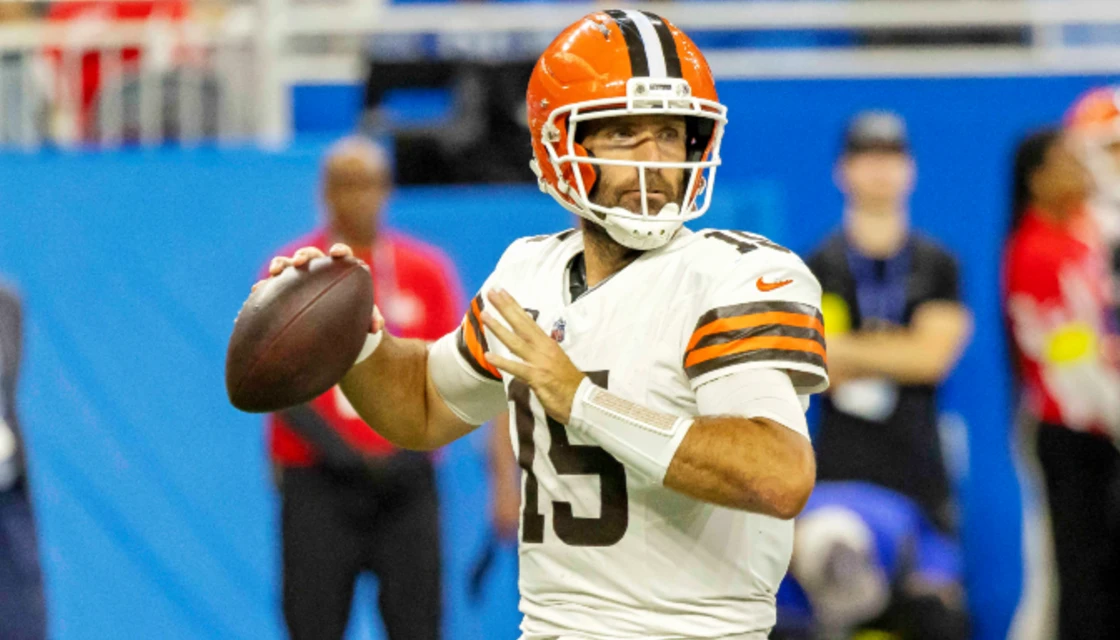Proposition wagers on the performance of college student-athletes are no longer allowed in Ohio. That’s according to a memo released by the Ohio Casino Control Commission Friday morning.
That decision came after the NCAA requested the OCCC pull those wagers from its Ohio sports betting catalog at the end of last month. NCAA President Charlie Baker cited “a significant increase” in student-athletes being harassed by bettors and that such wagers, which ride on the performance of a specific player, increase the odds student-athletes will be targeted. Those players face threats of violence or could be approached by people seeking to fix an outcome.
In a six-page memo sent to stakeholders Friday, OCCC Executive Director Matt Schuler said the NCAA demonstrated “good cause” to implement the ban. Any active player prop wager involving a student-athlete must be voided, he wrote, and Ohio betting apps have until next Friday, March 1, to implement the ban and cancel the affected wagers.
“I have determined that good cause supports the NCAA’s request to prohibit player-specific prop bets on intercollegiate athletics competitions because the NCAA’s request will safeguard the integrity of sports gaming and will be in the best interests of the public,” Schuler wrote.
The move also comes after Ohio lawmakers last year passed a law that bans anyone who has threatened athletes with violence from being able to wager on sports in the state. That push stemmed from comments made by Dayton basketball coach Anthony Grant, who mentioned his players were harassed by bettors early last year, just days after the state launched sports betting on Jan. 1, 2023.
$104 Million Bet on Student-Athlete Props
Schuler sent notice three weeks ago to Ohio’s 20 online sports betting operators and the nine companies that have 16 brick-and-mortar sportsbooks across the state, asking them for data on the number of college player prop wagers it handled last year and for any comments about implementing a ban.
According to Schuler’s Friday memo, Ohio sports betting operators accepted $104.6 million in such wagers last year. While that seems like a significant amount, it made up less than 1.4% of the $7.65 billion worth of sports bets placed in the state last year. The commission estimated those wagers led to nearly $12.6 million in revenue — operators won almost $937 million last year — and generated $2.5 million in state taxes.
“While I recognize that there may be a small negative impact to operator and tax revenue, the protection of student-athletes and the integrity of collegiate competitions far outweigh these impacts,” he wrote.
Operators contended they should be able to offer the bets, with some pointing out that offshore wagering apps would still accept them. However, Schuler called that “a faulty assumption” and said operators did not provide any facts to support their claim.
“While some may revert to illegal operations, the vast majority of Ohioans engage only in legal gambling activity,” he said. “Given the relative small percentage of wagers placed on player-specific prop bets, I perceive the risk of a black market boom to be low.”
BetMGM Ohio is offering at least 16 different player prop bets on Friday’s Cleveland-Philadelphia NBA game, but has only team oriented bets for the handful of college basketball games on Friday’s schedule.
Baker: Ohio Takes ‘Significant Step’
In a statement to BetOhio.com, Baker commended the OCCC for approving the association’s request.
“Today’s decision by the Ohio Casino Control Commission to prohibit player-specific prop bets on collegiate competitions marks a significant step in the protection of student-athlete well-being and game integrity,” said Baker, the former governor of Massachusetts. “I thank the Commission for recognizing the serious threats posed by prop bets and implementing controls to help safeguard student-athlete mental health from the risks of sports betting harassment and abuse.”
With Ohio now banning college player prop bets, it joins the majority of states with legal sports betting in doing so. Only 13 of the 38 states permit such wagers, and of those, three only allow them at brick-and-mortar sportsbooks.
Baker’s comment, though, did not address whether the NCAA will pursue similar bans in other states. Regulators from Kentucky and Iowa, two states that allow such player prop wagering (although Iowa bars such bets in contests involving in-state teams), told BetOhio.com earlier this month they did not receive a similar letter from the NCAA.
Besides player-specific prop bets, Ohio sportsbooks will not be able to offer prop wagers for college games where the statistical benchmark relies mainly on the performance of at least two players in more than half of the instances. That would include such wagers as totals on team passing yards in college football.










